World News Daily(2024-09-25) : China Considers Ending Collective Punishment for Relatives of Criminals
China Considers Ending Collective Punishment for Relatives of Criminals

China's legal experts are pushing to end "collective punishment," a practice that bars law-abiding citizens from civil service, university, or military roles if they have a relative who is a convicted criminal. This practice affects an estimated 100 million people, or 1 in 14 Chinese citizens.
Collective punishment isn't explicitly mentioned in China's criminal law but stems from regulations that restrict convicted criminals from certain jobs and require them to disclose their criminal history. Over time, these restrictions have expanded to include family members during "political reviews" for job applications and university admissions.
Legal scholars argue that collective punishment violates the principle that criminal liability should be individual, not familial. Despite this, the practice persists, partly due to its perceived deterrent effect.
Calls for reform include banning collective punishment and regulating the broader set of "collateral consequences" imposed on convicted criminals. Some suggest reviewing the constitutionality of related regulations and encouraging citizens to use the "record and review" system to challenge them.
In essence, collective punishment is a relic that needs modernizing. It punishes the innocent for the sins of the guilty, a concept that should have no place in a fair legal system.
ScoresPolitics
China Conducts First Public ICBM Test with Dummy Warhead

China conducted its first public test launch of an intercontinental ballistic missile (ICBM) on September 25, 2024. The missile, carrying a dummy warhead, was launched into the Pacific Ocean by the People’s Liberation Army Rocket Force. The Chinese defense ministry described the launch as a routine part of their annual training plan, not targeting any specific country.
China informed relevant countries in advance, though details on the missile’s path and exact landing site were not disclosed. The test aimed to assess weapon performance and troop readiness.
The PLA Rocket Force is modernizing China’s nuclear arsenal to counter U.S. missile defenses and surveillance capabilities. Some analysts believe China’s nuclear buildup exceeds a credible minimum deterrence. Beijing maintains a “no first use” policy and asserts that President Xi Jinping’s Central Military Commission is the sole nuclear command authority.
China’s nuclear arsenal currently includes over 500 warheads, with approximately 350 ICBMs. The Pentagon estimates China will have over 1,000 warheads by 2030, with many at higher readiness levels. This buildup contrasts with the U.S. and Russia, each with around 1,700 operational warheads.
Taiwan, claimed by China as its territory, has reported increased military activities by China in recent years. On the day of the ICBM test, Taiwan detected 23 Chinese military aircraft, including J-16 fighters and drones, conducting missions around the island. Taiwan’s defense ministry also noted “intensive” missile firings and drills, though specifics were not provided.
ScoresFrom Toffee Seller to President: Anura Kumara Dissanayake's Remarkable Journey

Anura Kumara Dissanayake, Sri Lanka's new president, rose from poverty in Thambuttegama, a village where wild elephants still forage at night. His father was a laborer, and as a schoolboy, Dissanayake sold toffees to help his family. After high school, he adopted the name "Aravinda" to hide his involvement with the Marxist Janatha Vimukthi Peramuna (JVP) movement, which rebelled against the Sri Lankan state.
Dissanayake's cousin, Sunil, was killed for his JVP ties, and Dissanayake himself faced threats, dropping out of the University of Peradeniya. He later graduated from the University of Kelaniya with a degree in physical science. His university roommate noted his deep reading of Russian literature, including works by Gorky, Pushkin, and Chekhov.
Dissanayake's political career began with the JVP, rising through its ranks and helping transform it into the National People's Power (NPP) alliance. The NPP attracted technocrats and academics, broadening the JVP's appeal. After the 2004 election, Dissanayake became minister of agriculture, livestock, land, and irrigation.
His victory in the recent presidential election was rooted in the JVP's grassroots outreach and a social media blitz. Dissanayake promised to build confidence among those who didn't support him, drawing on his humble beginnings to bridge divides.
Insights: Dissanayake's journey from a toffee seller to president is a testament to resilience and strategic political maneuvering. His ability to balance diverse interests within the NPP while staying true to his Marxist roots showcases a pragmatic approach to leadership. His conciliatory tone post-election suggests a willingness to unify a fractured nation, leveraging his personal story to connect with a broad audience.
ScoresSociety
Central Bank Policy Package: Lowering Mortgage Rates and Down Payment Requirements for Second Homes to Boost Real Estate Market Recovery
The central bank has rolled out a policy package aimed at boosting the real estate market. Key measures include reducing the interest rates on existing mortgage loans and lowering the minimum down payment ratio for second homes to 15%.
The interest rates on existing mortgage loans will be reduced by an average of 0.5%, significantly easing the financial burden on households and promoting consumption. The reduction in the down payment ratio for second homes lowers the threshold for upgrading housing, helping to release latent demand, especially in economically developed and high-population-influx cities.
Experts analyze that these policies not only address the reasonable demands of the public but also signal that the real estate market is gradually emerging from a trough. Although lowering the down payment ratio increases the leverage of homebuyers, it also reflects the central bank's confidence in the long-term stability of housing prices.
ScoresThe U.S. Department of Justice sues Visa for alleged illegal monopolization of the debit card market.

The U.S. Department of Justice has accused Visa of illegally monopolizing the debit card market, leading to consumers paying additional fees. Visa denies the allegations and says it will defend itself in court. The DOJ claims that Visa achieved its monopoly through incentives and exclusive agreements, affecting over 60% of debit card transactions and generating annual fees exceeding $7 billion.
Visa argues that it is one of many competitors and emphasizes the security and value of its network. The lawsuit does not seek specific remedies but aims to obtain injunctions to halt certain pricing and contract rules.
Experts believe that more competition could reduce fees, but consumers may not directly benefit. The outcome of the lawsuit will depend on Visa's defense strategy.
The Biden administration has emphasized the importance of competition to the economy and has taken steps to combat unfair fees.
ScoresHurricane Helene Threatens Gulf Coast and Caribbean Regions
A cluster of storms south of the Cayman Islands is expected to strengthen into Hurricane Helene by Wednesday, heading toward the Gulf Coast. Forecasters warn it could become a major hurricane, possibly a Category 4. Florida Gov. Ron DeSantis declared a state of emergency in 41 counties.
The storm is fueled by warm sea temperatures and favorable atmospheric conditions, including moist air and light upper-level winds. It’s moving northwest at 6 mph with sustained winds of 35 mph.
Hurricane watches are in effect for parts of Cuba and Mexico, with tropical storm warnings for Grand Cayman and eastern Mexico. Florida’s Lower Keys and Dry Tortugas are under a tropical storm watch.
Heavy rainfall, up to 12 inches in isolated areas, is forecast for western Cuba, the Cayman Islands, and the eastern Yucatán Peninsula. Flash and river flooding are expected in the southeast U.S. starting Wednesday.
Storm surge of up to 4 feet is predicted for parts of Cuba and Mexico. The Cayman Islands closed schools due to expected flooding.
Helene would be the eighth named storm of the Atlantic hurricane season, which has been predicted to be above average due to record-warm ocean temperatures.
ScoresThe People's Bank of China cut the MLF rate by 30 basis points, injecting 300 billion yuan of liquidity.
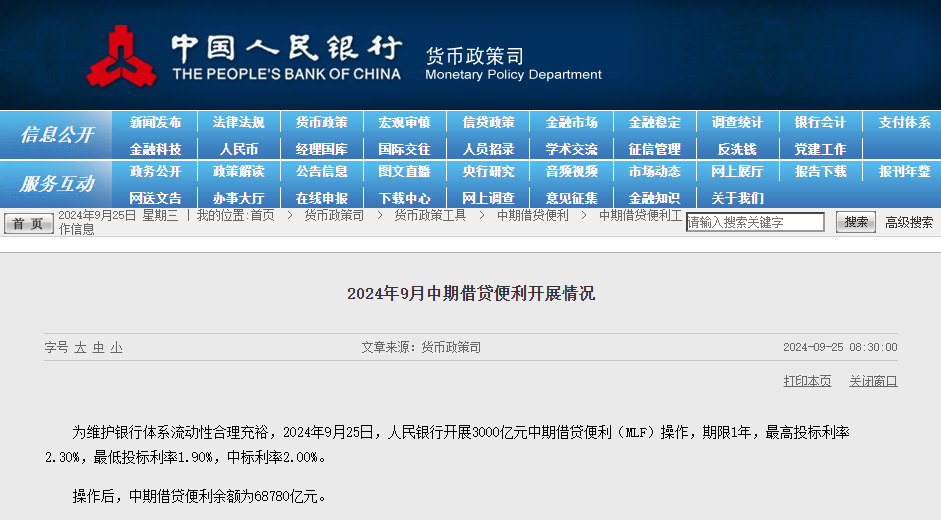
The central bank today conducted a 300 billion yuan Medium-term Lending Facility (MLF) operation with a one-year term, lowering the bid rate by 30 basis points to 2.00%. This move aims to maintain liquidity in the banking system and stabilize the financial markets. A total of 591 billion yuan in MLF is due to mature this month, and the central bank has pre-announced the rollover.
Pan Gongsheng, Governor of the People's Bank of China, announced reductions in the reserve requirement ratio and policy interest rates, with the 7-day reverse repo operation rate cut by 0.2 percentage points to 1.5%. It is expected that the MLF rate will be cut by about 0.3 percentage points, and the Loan Prime Rate (LPR) and deposit rates will also be lowered by 0.2 to 0.25 percentage points.
Haitong Macroanalysis pointed out that current economic data is weak, and the need for policy stability and growth has increased. The annual reduction in the reserve requirement ratio has already reached 100 basis points, and the central bank indicated that it may further reduce the reserve requirement ratio by 0.25 to 0.5 percentage points before the end of the year. The amount of MLF maturing in the fourth quarter reaches 3.69 trillion yuan, and the reduction in the reserve requirement ratio helps to replenish liquidity and reduce the cost of bank funds.
Huachuang Securities believes that the current exchange rate pressure is small, and there is significant room for monetary policy adjustments. The central bank stated that after this round of adjustments, the average deposit reserve ratio for banks has dropped to 6.6%, leaving further room for reduction. It is expected that the LPR and deposit rates will follow suit with a reduction of about 0.2 to 0.25 percentage points in the near months.
Explanation:
- MLF (Medium-term Lending Facility): A tool used by the central bank to provide medium-term loans to commercial banks.
- LPR (Loan Prime Rate): The lending rate that commercial banks charge to their most creditworthy customers.
- Reverse Repo Operation: An operation by the central bank to inject short-term liquidity into the market.
Economy
Global Market Rally Triggered by U.S. and China Policy Moves
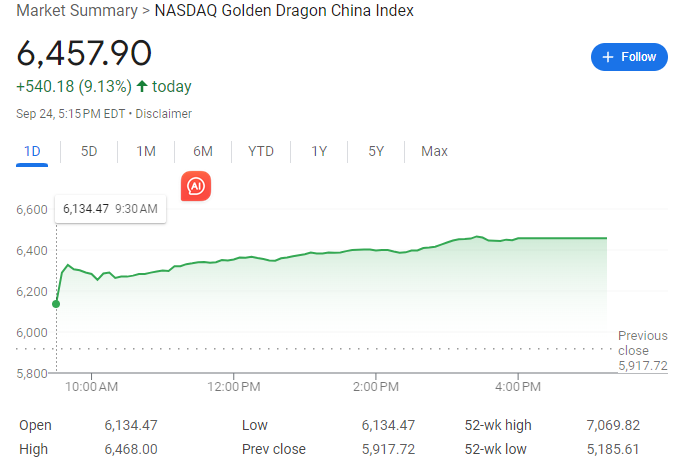
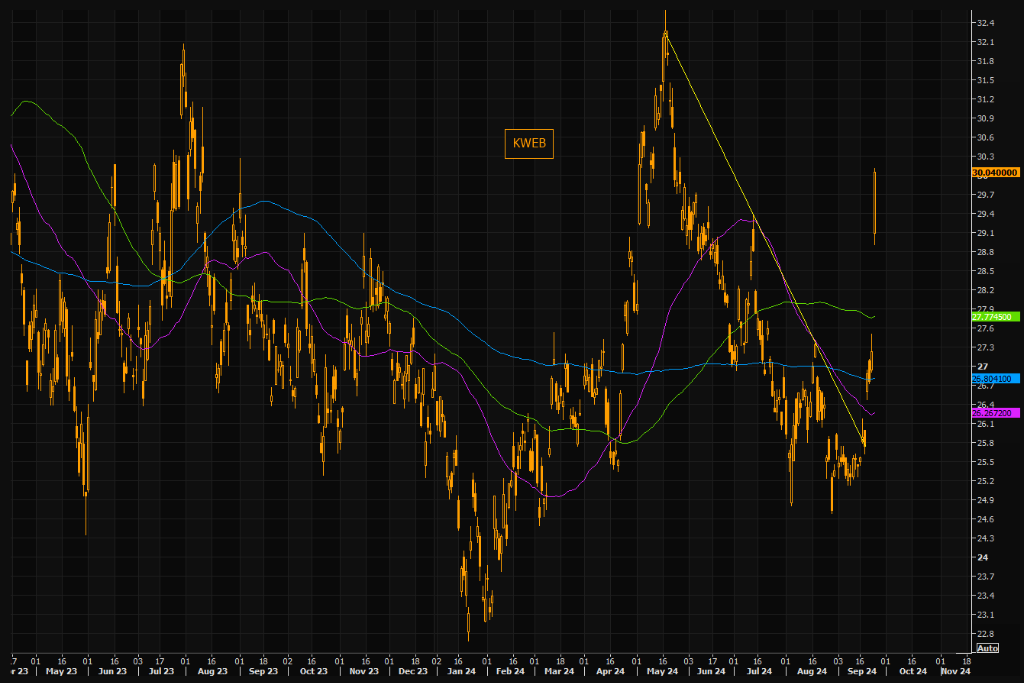
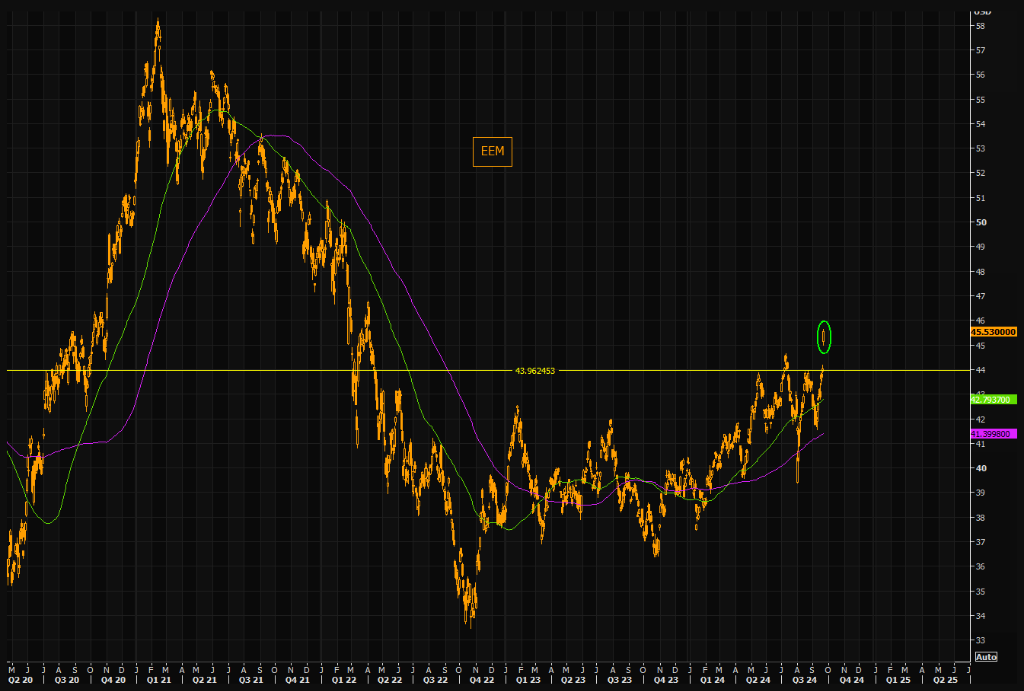
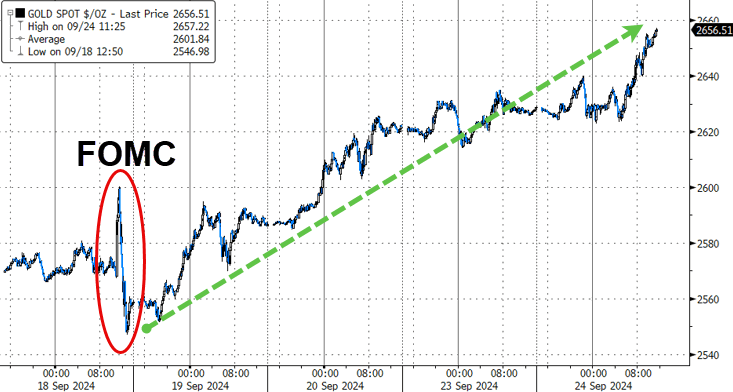
In a week marked by global market turbulence, both the U.S. and China implemented substantial economic measures. The Fed slashed rates by 50 basis points, igniting risk appetite. China followed suit with a series of policies: a 50 basis point cut in the reserve requirement ratio, a 20 basis point reduction in the policy rate, and measures to lower mortgage rates and facilitate stock buybacks.
The market reacted positively. Chinese stocks soared, with the Shanghai Composite rising 4.15%, its largest daily gain in over four years. Hong Kong's Hang Seng Index broke through 19,000, up 4.13%. U.S.-listed Chinese stocks also rallied, with the Nasdaq Golden Dragon China Index jumping over 9%.
Emerging markets also benefited, with the MSCI Emerging Markets Index reaching a two-and-a-half-year high. The surge was driven by expectations of stronger Chinese growth supporting commodity prices in Latin America.
Meanwhile, weak U.S. economic data—a 6.9-point drop in consumer confidence—fueled speculation of further Fed rate cuts, pushing gold prices to new highs. The COMEX December gold futures hit $2,689.40, while spot gold surged past $2,660.
Investors flocked to Chinese assets, betting on continued growth and policy support. The iShares China Large-Cap ETF (FXI) and KraneShares CSI China Internet ETF (KWEB) both saw significant gains.
In summary, coordinated policy moves by the U.S. and China sparked a global market rally, with Chinese assets and gold leading the charge. Investors are betting on sustained growth and further monetary easing, but risks remain.
ScoresMoody's Warns of Potential Loss of AAA Rating for U.S. Without Substantial Debt Reduction
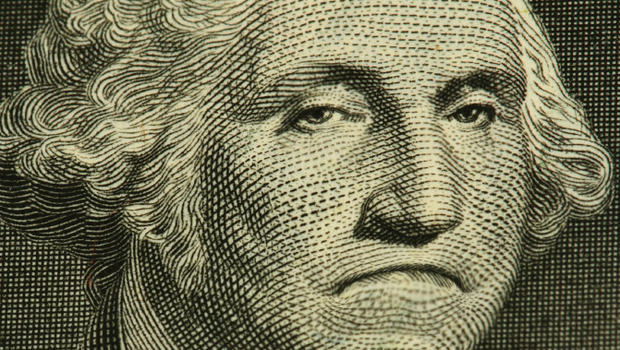
Moody's warns that the United States could lose its sole AAA top sovereign credit rating if it does not take substantive measures to reduce debt. William Foster, Senior Vice President at Moody's, points out that the new U.S. administration must address the growing budget deficit. If not corrected, the debt situation will become unsustainable and inconsistent with an AAA rating.
Moody's is watching how the new Congress and White House will strengthen fiscal conditions after the election. Fiscal policy is key, especially in addressing the deficit issue. The U.S. federal debt stands at around $28 trillion, with the fiscal deficit consistently exceeding 6% of GDP, and net interest payments on federal debt could surpass $1 trillion annually, accounting for 3% of GDP. Resolving the debt ceiling issue is crucial for maintaining financial market stability.
Moody's expects the U.S. government to ultimately resolve the debt ceiling dispute and continue to repay debt on time and in full. The 10-year benchmark U.S. Treasury yield could rise to 4%, and if it can be maintained at 4% or lower, it will alleviate debt costs.
Moody's also notes that the Federal Reserve's independent decision-making has not been influenced by politics. U.S. trade policy may remain protectionist, driving a shift towards domestic industrial policies. Immigration policy may increase labor costs in industries reliant on foreign labor. A divided Congress may slow the transition to a low-carbon economy, but private sector, state governments, and consumer preferences will continue to drive the transition.
Last year, Moody's downgraded the outlook on the U.S. sovereign credit rating to "negative," and both S&P and Fitch also downgraded their ratings. Moody's rationale was the large fiscal deficit and declining debt affordability. The downgrade in outlook suggests a potential downgrade within the medium term, exacerbating fiscal concerns.
Sovereign Credit Rating: An assessment by rating agencies of a country's government's ability to repay debt, with AAA being the highest rating.
Fiscal Deficit: The portion of government spending that exceeds its income.
Debt Ceiling: The maximum amount of money the government is allowed to borrow, set by Congress.
ScoresTechnology
Nanjing University research team discovers nanobody with strong inhibitory effect against HIV virus.
A research team from Nanjing University has isolated an antibody from alpaca that can strongly inhibit the HIV virus. Experiments show that this antibody is over 99% effective in suppressing the virus, with broad-spectrum and antiviral activity. The findings were published in Nature Communications, providing insights for the development of new drugs.
Explanation:
- Nanobody: A small antibody typically isolated from camelids, known for its high antiviral efficiency.
- Broad-spectrum: Refers to the antibody's ability to inhibit a wide range of viruses or bacteria.
2024 Updates on OpenAI's ChatGPT and AI Innovations
ChatGPT, OpenAI’s AI chatbot, launched in late 2022 and quickly became a global phenomenon. By 2024, it was used by over 92% of Fortune 500 companies. OpenAI’s partnership with Apple for Apple Intelligence further boosted its prominence.
In 2024, OpenAI released GPT-4o, an omni model with voice and vision capabilities. However, the voice feature, Sky, was paused after claims it mimicked Scarlett Johansson’s voice in “Her.”
OpenAI faced internal turmoil, including the departure of co-founder Ilya Sutskever and a lawsuit from major newspapers for copyright infringement.
Key updates in 2024:
- OpenAI rolled out Advanced Voice Mode with new voices and a redesigned interface.
- A YouTuber modified a graphing calculator to run ChatGPT, raising concerns about cheating.
- OpenAI introduced OpenAI o1, a model that can fact-check itself.
- A hacker tricked ChatGPT into providing bomb-making instructions.
- OpenAI reached 1 million paid users for its corporate offerings.
- Volkswagen integrated ChatGPT into its vehicles in the US.
- OpenAI signed content deals with Condé Nast and TIME.
- OpenAI tested SearchGPT, a new AI search tool.
- OpenAI partnered with Los Alamos National Laboratory for bioscience research.
- Apple integrated ChatGPT into Siri and other apps.
OpenAI’s rapid growth and innovation come with challenges, including ethical concerns and operational costs. The company’s journey reflects the complex landscape of AI development and its societal impact.
ScoresVideo Game
Ghost of Tsushima Sequel Announced with New Protagonist and Time Setting

Ghost of Tsushima sequel, Ghost of Yotei, announced. Set 300 years after the original. New protagonist, new story. Scheduled for 2025.
ScoresEntertainment
James Cameron Joins Stability AI Board to Advance Visual Storytelling
James Cameron, director of Avatar and Titanic, joins Stability AI's board. The firm, known for its Stable Diffusion model, focuses on text-to-image AI. Cameron, a pioneer in CGI, sees AI as the next frontier in visual storytelling. Stability AI's CEO, Prem Akkaraju, previously led WETA Digital, a visual effects company. Sean Parker, ex-Facebook president, also joined as executive chairman. Cameron aims to merge AI and CGI to create new storytelling methods.
CGI: Computer-Generated Imagery, used in films to create visual effects.
ScoresHealth
Senate Questions Novo Nordisk CEO on High Drug Prices
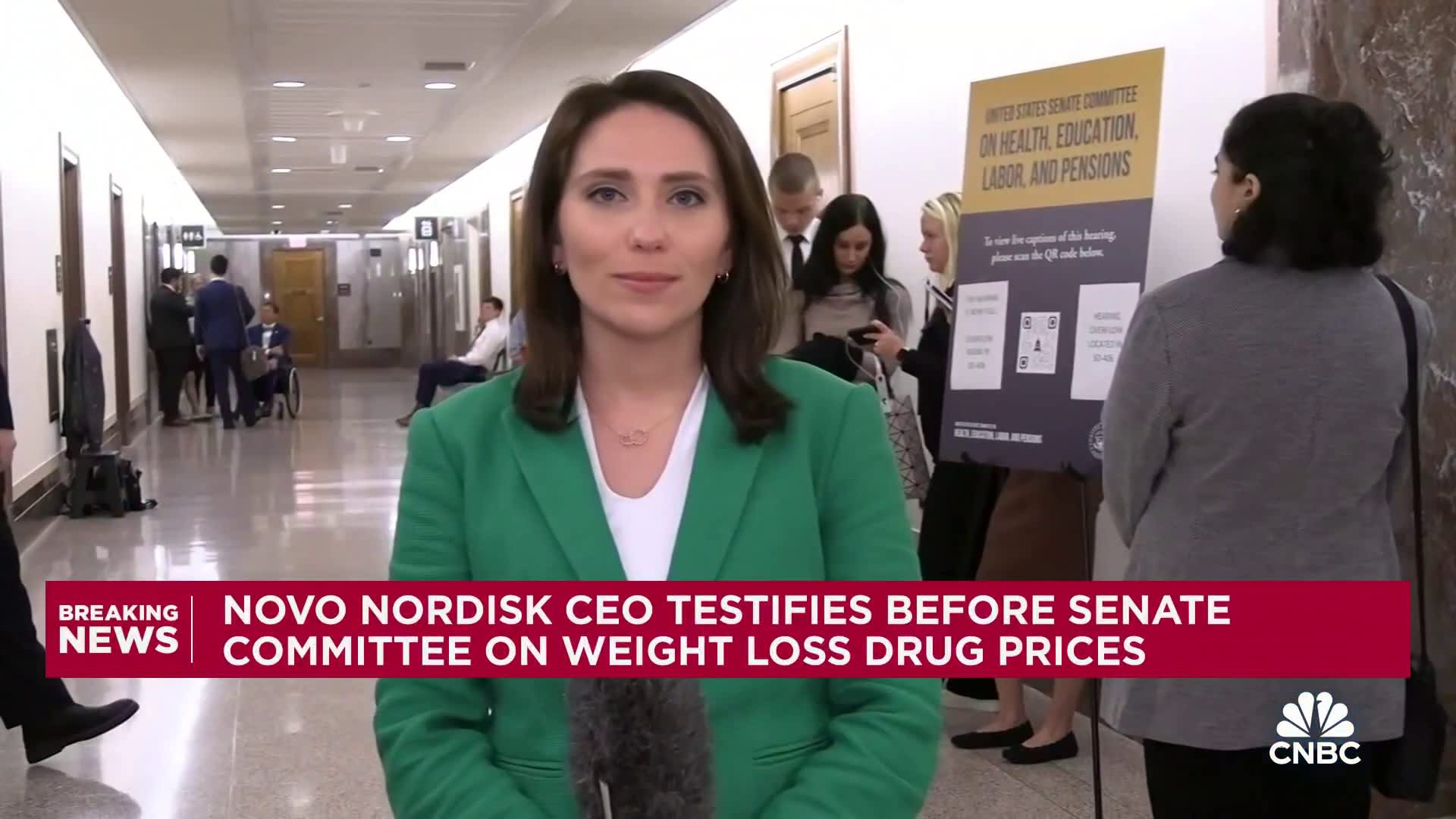
Novo Nordisk CEO Lars Fruergaard Jørgensen faced Senate scrutiny over the high prices of Wegovy and Ozempic. These drugs, used for weight loss and diabetes, are significantly cheaper in Europe. For instance, Ozempic costs $59 in Germany, while in the U.S., it’s nearly $969 per month.
Senator Bernie Sanders accused Novo Nordisk of "ripping off" Americans, noting the company’s $50 billion in sales, mostly from the U.S. Sanders revealed that generic drug CEOs could sell a version of Ozempic for under $100 a month.
Jørgensen argued that PBMs (pharmacy benefit managers) control drug prices and that lowering Novo Nordisk’s prices could reduce insurance coverage. He cited the example of Levemir insulin, which lost coverage after a price cut.
Despite this, Jørgensen pledged to work with lawmakers and PBMs to address affordability issues. The hearing highlighted the complex U.S. healthcare system and the need for policy solutions to ensure drug accessibility and affordability.
ScoresStudy Reveals Higher Pregnancy Complications for Surrogates

Women acting as surrogates face higher risks of pregnancy complications compared to those who carry their own babies, a study finds. The use of surrogates, known as "gestational carriers," has surged in recent years. In England and Wales, the number of parental orders, which transfer legal parentage from the surrogate, rose from 117 in 2011 to 413 in 2020.
A Canadian study reveals surrogates are more likely to experience severe postpartum hemorrhage and severe pre-eclampsia than women who conceive naturally or via IVF. Babies born to surrogates are also more likely to be premature, though not necessarily with severe neonatal complications.
The study, based on data from Ontario, analyzed 863,017 singleton births from 2012 to 2021. Out of these, 806 were surrogacy births, 846,124 were unassisted conceptions, and 16,087 involved IVF. The rate of severe maternal complications was 7.8% for surrogates, 2.3% for unassisted conceptions, and 4.3% for IVF pregnancies.
Factors like previous births, lower income, obesity, and high blood pressure do not fully explain the higher risks. After adjusting for these factors, surrogates had a 2.9 times higher risk of severe postpartum hemorrhage and a 1.79 times higher risk of preterm birth compared to unassisted conceptions. Risks were also higher, though less so, compared to IVF pregnancies.
Experts call for better prenatal care and stricter criteria for surrogates. The study raises ethical questions about the potential exploitation of women and the neglect of their health in the surrogacy process.
ScoresThe global problem of childhood myopia is becoming increasingly severe, and the reduction in outdoor activities is exacerbating the trend.

Childhood vision problems are becoming increasingly severe, with one in three children worldwide suffering from myopia. During the COVID-19 pandemic, increased screen time and reduced outdoor activities have exacerbated this trend. By 2050, myopia could affect more than half of the world's teenagers.
Asia has the highest rates of myopia, with Japan and South Korea reporting rates of 85% and 73%, respectively. China and Russia also exceed 40%. Paraguay and Uganda have the lowest rates, around 1%. The United Kingdom, Ireland, and the United States report rates of about 15%.
Myopia typically begins in elementary school and stabilizes around the age of 20. Genetic factors, early education, and prolonged close-up work are the main causes. Outdoor activities can reduce the risk of myopia, but the reasons are not fully understood.
Myopia cannot be cured, but it can be corrected with glasses or contact lenses. Special lenses can slow the progression of myopia in young children but are expensive.
High rates of myopia could lead to an increase in eye diseases among the elderly. Signs of myopia include difficulty reading distant text, sitting close to the TV or computer, headaches, and frequent eye rubbing.
Parents should monitor their children's vision and have them checked between the ages of 7 and 10. Myopia has a hereditary component, and children of myopic parents are three times more likely to develop myopia.
ScoresFood
Japan's Evolving Coffee Culture: Art, Science, and Ritual




Tokyo's coffee scene has evolved into a blend of art, science, and ritual. Ignis Coffee, in Sendagi, exemplifies this transformation. Baristas here craft pour-overs using rare beans and innovative methods, like the Paragon, which enhances aroma. The result? Coffees with flavors as intricate as strawberry jam and passion fruit.
Japan's coffee history dates back to the 1500s with Portuguese arrivals. By the Showa era, coffee shops, or kissaten, symbolized modernity. Today, the country leads in specialty coffee, with baristas like Taka Ishitani winning international acclaim. Kyoto's % Arabica has over 130 global locations, and Tetsu Kasuya's 4:6 Method has revolutionized hand-drip brewing.
High-end cafes, such as Koffee Mameya Kakeru and omakase Cokuun, elevate coffee to a gourmet experience, drawing parallels with traditional Japanese cuisine. At Torahebi Coffee in Shibuya Parco, science meets coffee under the slogan "Coffee and Science."
Scores